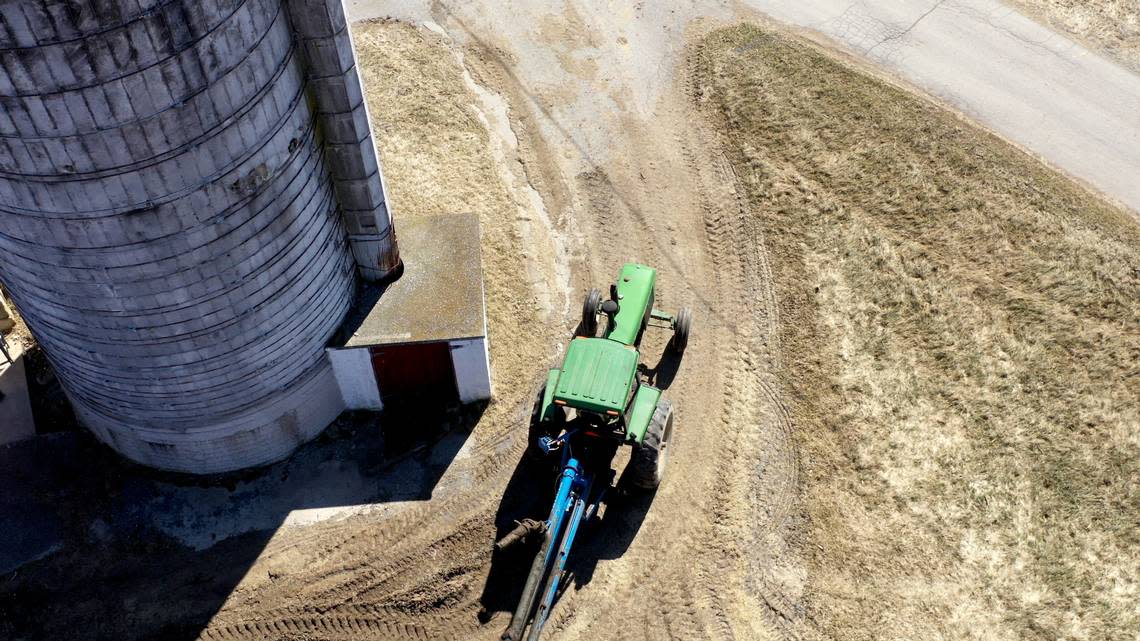Opinion: Congress must act on state agricultural production standards to protect producers, consumers

As farmers, we recognize that Americans are increasingly interested in where their food comes from and how it is produced. This is especially true with how animals are raised for food production, which has led some states to impose emotionally satisfying yet counterproductive animal welfare standards for products sold within their borders — regardless of where those products originate.
The 2018 adoption of California’s Proposition 12 (Prop 12), a ballot initiative prohibiting the sale of eggs, veal meat and pork products from animals unless they meet the state’s confinement standards, is the most recent state action illustrating the need for Congressional action. California consumes about 15% of the nation’s pork, while producing less than a tenth of a percent of it, meaning they must rely on out-of-state production to meet their demand.
Yet rather than protecting animal health, California’s standards now threaten to create a patchwork of ill-conceived laws and regulations that not only fails to protect animals but also increases consumer costs. This unscientific law weakens food security, which is linked to national security, and threatens the livelihoods of small family farms that are the backbone of Pennsylvania agriculture. To prevent these negative outcomes, Congress must take the upcoming farm bill as an opportunity to act.
American Farm Bureau Federation (AFBF) and the National Pork Producers Council (NPPC) filed a legal challenge claiming a violation of the Interstate Commerce Clause, which was met with the support of the U.S. Solicitor General but ultimately rejected by the U. S. Supreme Court, thus returning the issue to Congress. If Congress fails to find a legislative fix, one state will be allowed to dictate business practices for the entire nation. This increases the risk of states tangling up America’s entire system of interstate commerce by passing unscientific laws limiting or prohibiting the sale of any type of goods from other states.
Fortunately, United States House Agriculture Chairman Glenn “GT” Thompson has proposed a common-sense solution to address the issue. Chairman Thompson’s proposal clarifies that states and local governments cannot impose standards of production, as a condition for sale or consumption, on livestock produced outside of their borders. This protects a producer’s right to participate in a national market without having to adhere to a patchwork of costly compliance requirements. It also protects the rights of states and local governments to impose production standards as they see fit, but only for livestock raised within their own borders.
Renovations to become compliant with things like Prop 12 are financially burdensome for producers of all sizes — especially for small family farms — that are already struggling to remain in operation and would likely not be able to stay in business with Prop 12. Ultimately, this will lead to even more consolidation in agriculture, which will inevitably translate to increased prices at the grocery store and fewer families who can afford high-quality protein.
Worst of all, the promised improvements to animal welfare under Prop 12 standards simply do not materialize, in large part because those standards were created by people with little to no knowledge or understanding of the realities of veterinary science and animal husbandry. In the case of the pork industry, sow mortality rates have increased nationwide since the implementation of Prop 12 — an outcome that the Golden State’s Department of Food and Agriculture (CDFA) admitted would occur before Prop 12 was implemented.
The continued presence of Prop 12 (and other state laws like it) sets a harmful precedent for animal agriculture and opens the ability for states to create a similar patchwork of mandated growing practices for beef, poultry, sheep, and/or dairy. Congress needs to support the Chairman’s solution to protect farmers and consumers from unscientific state mandates that threaten animal health, economic viability, and interstate commerce.
Chris Hoffman is the president of the Pennsylvania Farm Bureau.

